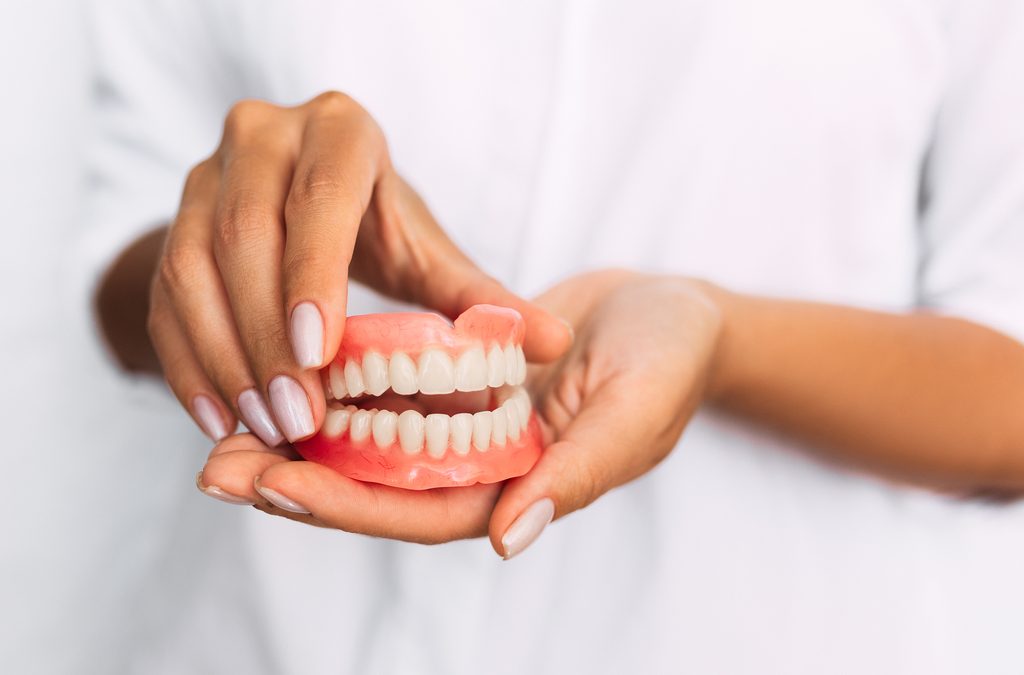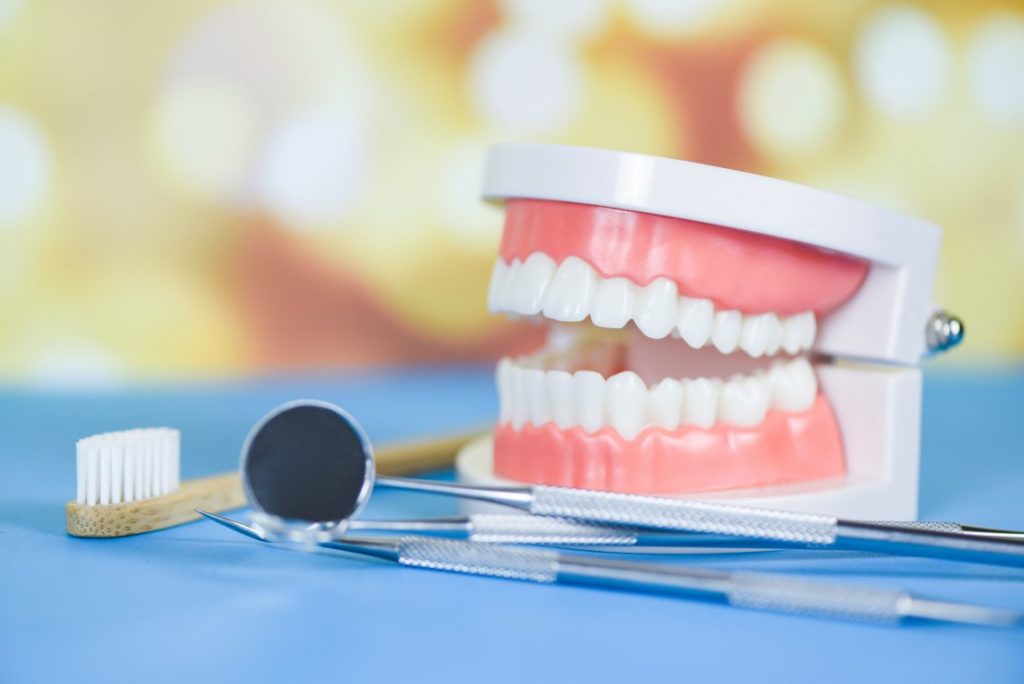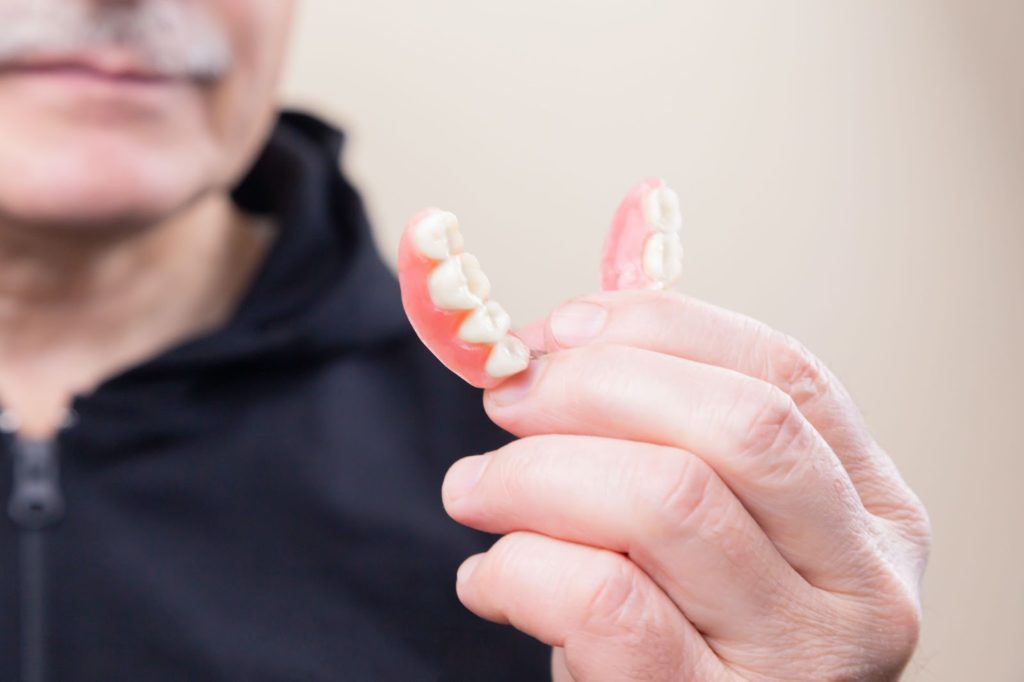Dentures are an excellent solution to a dental concern involving losing several teeth on the upper or lower jaw, putting the healthy teeth at risk of weakening.
Fortunately, consulting your dentist for custom-made yet affordable dentures in Tampa could save you a lot of dental troubles in the future.
Though like many things, dentures need proper cleaning. So if it’s your first time having a denture, this article will guide you through the right ways to maintain a denture.
What do I have to do?
Generally speaking, traditional dentures demand a rigorous cleaning routine that you could take out at night before jumping on the bed.
Since you would have to eat and drink throughout the day, leftover food and plaque will likely stick to the dentures, which will compromise your oral health by encouraging bad breath and gum disease.

Method 1: Running water and soap
You need to clean the dentures with a soft-bristled brush, cotton towel, and a mild soap or denture cleaning solution.
Make sure to schedule a regular cleaning at least once a day or each time you finish eating by running water over the dentures to take out the loose particles.
Bear in mind to not damage or bend the clasps or plastic while cleaning the item. It may be tempting to use regular toothpaste, but it’s often discouraged because several toothpaste brands contain ingredients that aren’t compatible with false teeth.
The abrasive nature of the toothpaste could lead to gradual tearing to the surface of your dentures. It could even apply enough pressure that’ll leave you with small cracks and scratches.
While cleaning, make sure to remove all the deposits around the dentures using the toothbrush and put on a nonabrasive denture cleanser. Take note to thoroughly clean the area of the grooves since it makes contact with your gums.
However, it would help if you didn’t use the same solution inside your mouth because of its harmful chemicals. Next, carefully rinse your false teeth under running water and dry them using a cotton towel when you’re done.
Method 2: Take advantage of hydrogen peroxide
Hydrogen peroxide deserves a room on your shelf. Not only is it an excellent remedy in eliminating hair dye from one’s scalp and skin or maintaining the white appearance of your shoes, but it’s also an effective chemical against plaque buildup on dentures.
This agent is easy to buy at your local supermarkets. Using it at 3% or less concentration can safely turn it into a cleaning solution to mainly remove discoloration and stains.
For this situation, you would have to take your dentures out before applying the substance directly on its surface. Then use your soft-bristled toothbrush in rubbing your artificial teeth.
Even with a minimal amount, you’d immediately see visible results after a single use of hydrogen peroxide. Just be sure to do a gentle cleaning since this chemical is abrasive.

Method 3: Use some lemon juice
The bleaching properties that are contained in lemon juice are the reason for its acidic nature. Due to this, lemon juice has been a common alternative in stain removal for laundries, but it also works like magic as a denture cleaner.
If you’re planning to use this method, we recommend squeezing a lemon into a cup and adding water. Afterward, feel free to soak your dentures in the mix for roughly 30-40 minutes and rinse the solution off using cold water.
Be mindful not to leave your dentures longer than what we advise since lemon juices are entangled with corrosive acids, which could end up damaging your device in the process.
Final words
There are various ways to clean your dentures to minimize the risk of transferring unwanted bacteria, leading you to get sick. That’s why you must have the initiative to scrub your artificial teeth daily.
Above all, you shouldn’t forget to soak them in a water-based solution whenever you take them out of your mouth. This action would protect your device from tears and scratches.






